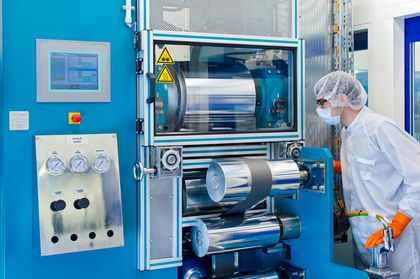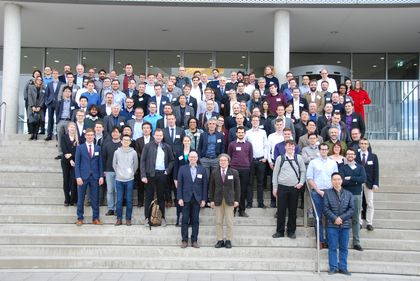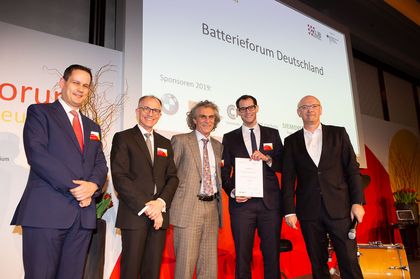Publications:
Over 40 scientific papers were published by TUM.Battery members in 2019. In the current Journal of Electrochemical Society (ECS) Ranking (as of November 2019) 8 papers published in the ECS of the TUM.Battery Chairs Prof. H. A. Gasteiger, Prof. A. Jossen and Prof. G. Reinhart were among the 50 most read in the field of batteries and energy storage.
Ranking: Most read articles (Journal der Electrochemical Society)
http://jes.ecsdl.org/reports/most-read
4:
Editors' Choice—Capacity Fading Mechanisms of NCM-811 Cathodes in Lithium-Ion Batteries Studied by X-ray Diffraction and Other Diagnostics / Franziska Friedrich, Benjamin Strehle, Anna T. S. Freiberg, Karin Kleiner, Sarah J. Day, Christoph Erk, Michele Piana, and Hubert A. Gasteiger / J. Electrochem. Soc. 2019 166(15): A3760-A3774; doi:10.1149/2.0821915jes
8:
Calendar Aging of Lithium-Ion Batteries: I. Impact of the Graphite Anode on Capacity Fade / Peter Keil, Simon F. Schuster, Jörn Wilhelm, Julian Travi, Andreas Hauser, Ralph C. Karl, and Andreas Jossen / J. Electrochem. Soc. 2016 163(9): A1872-A1880; doi:10.1149/2.0411609jes
16:
Influence of the Electrolyte Quantity on Lithium-Ion Cells / Florian J. Günter, Clemens Burgstaller, Fabian Konwitschny, and Gunther Reinhart / J. Electrochem. Soc. 2019 166(10): A1709-A1714; doi:10.1149/2.0121910jes




